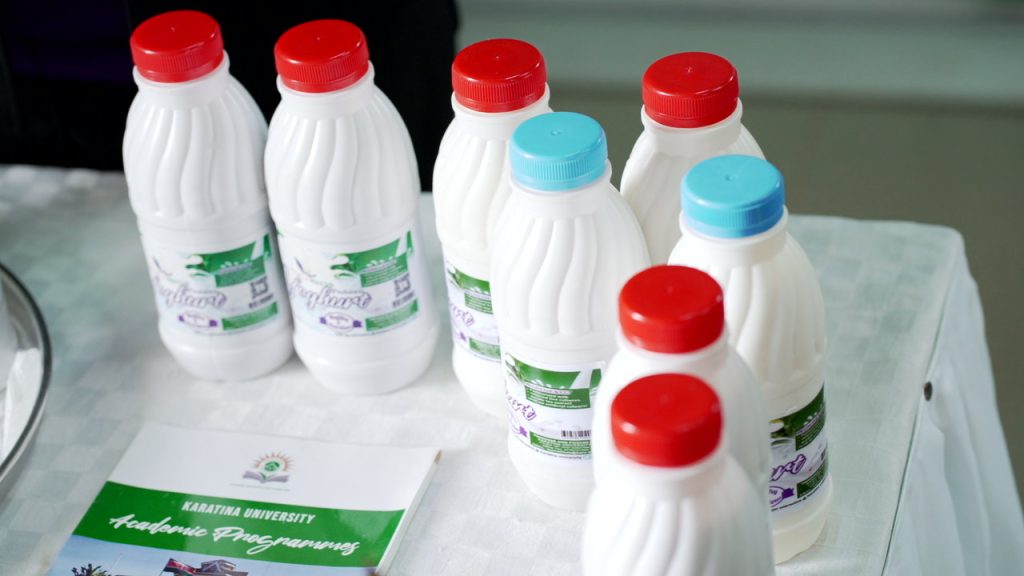Formulation and promotion of value-added purple tea (camelia sinensis) products in Kenya.
Karatina University’s Tea Institute, with funding from the National Research Fund, is developing innovative purple tea-based food products. So far, spiced tea lemonades, probiotic tea yoghurt, and purple tea cakes have been formulated. These nutritious products have received high consumer ratings for their taste, color, aroma, and health benefits, including obesity control, enhanced mental alertness, antiviral, anti-inflammatory, and antioxidant properties. Ongoing research is focused on creating youth-oriented products such as a natural sports purple tea drink, fruity fermented beverages, and iced tea drinks.
Market value
- Higher returns than black or green tea: up to 7× more
- Premium niche: Driven by health-conscious consumers seeking antioxidant-rich teas
- Main markets: Japan (largest importer), followed by US, UK, China, and Germany
Benefits
- Health Benefits
- Wellness Product
- Ideal for Lactose-Intolerant
- Demand For flavored yoghurt


A purple tea sample fresh from the farm and some samples of purple tea Yoghurt.
Key Insights
🌦️ Weather & Agronomic Traits
Thrives in cool, moist highlands with two rainy seasons (April–June, October–December) Natural resilience to drought, frost, pests, diseases, including nematodes, outperforming green/black tea in hardiness
📍 Growing Area & Cultivation
Primarily grown in the highland regions around Mt. Kenya, Nandi Hills, Muranga, Kericho, Kirinyaga, Kisii, and Nyeri—altitudes between 1,500–2,500 m, which offer cooler, wetter weather with 1,200–1,400 mm annual rainfall, ideal for tea cultivation
💰 Pricing & Yields
Local prices: approximately KES 2,600 per kg of processed tea—about 10× higher than green tea (KES ~200/kg)
Factory/farm gate prices range from USD 10–30/kg, depending on grade and destination .
Uptakers
-
Tea Farmers and Households
A few hundred growers are experimenting with purple tea around Mt Kenya and Kirinyaga through cooperatives and estates. Example: Kirinyaga Purple Tea Cooperative with ~30 acres has attracted over 100 members though adoption remains limited due to the 3-year maturation cycle and initial replanting costs
-
Suppliers and Processors
Private entrepreneurs: Women‑led ventures (Purple Chai, Njeru Industries) process ~400 kg/day, sell domestically and abroad (UK, China, Japan) Processing factories: Limited to a handful—Gatanga Industries, Kangaita, Michimikuru, Itumbe—though KTDA is piloting expansion
-
Supermarkets and FMCG Retailers
Chandarana: Accounts for ~3.5% of its tea department sales following purple tea introduction ~1 year ago Carrefour Kenya: Stocks branded products such as Eden Purple Tea (50 g for KES 185) and Ketepa Purple Tea (100 g at KES 375)
-
Special Health Stores
These outlets are beginning to stock purple tea in small batches, capitalizing on its antioxidant/healthful image. Brands marketed with anthocyanin benefits. While data is limited, demand is rising among health-conscious consumers